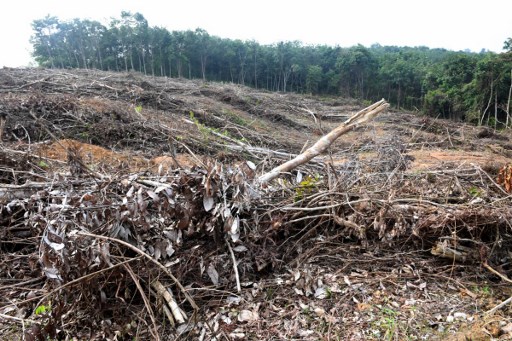Greenpeace slammed Indonesia’s palm oil industry Monday for failing to live up to a pledge to halt deforestation, as the lucrative sector faces possible restrictions in Europe over environmental concerns.
Palm oil is used in everything from soap to frozen pizza, but a consumer backlash has forced dozens of the world’s largest food and drink manufacturers to address its ecological impact.
Vast swathes of rainforest are destroyed to make way for palm oil plantations, threatening endangered species and pushing indigenous people off their lands.
International corporations, including Unilever, Kellogg and Mondelez, have pledged to adopt environmentally friendly supply chains by 2020.
But Greenpeace said in a report published on Monday that large palm oil traders are failing on that commitment.
The environmental group found that most of the 11 major traders operating in Indonesia did not have strict systems to monitor the origin of their goods and were not calling out non-compliant producers.
“Broadly, the palm oil industry has agreed to end deforestation. The issue — and it is a critical one — is only two of the 11 (traders) we looked at was actually able to say when they are going to end deforestation,” Richard George, a UK-based forest campaigner at Greenpeace, told AFP.
None of the firms contacted by AFP replied to requests for comment on the report.
The Greenpeace report comes against the backdrop of mounting concerns about palm oil’s environmental impact.
The European Union, the world’s second-largest consumer after India, passed a resolution in April calling for tougher environmental standards for palm oil linked to deforestation.
Indonesia and Malaysia — the world’s two largest producers — have been lobbying against the resolution.
Both countries have slammed possible EU import restrictions as unfair, and a move that would harm millions of mostly small-scale farmers.




